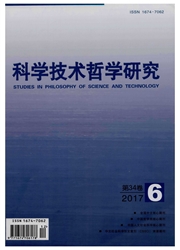

 中文摘要:
中文摘要:
继中文屋论证之后,塞尔又提出了一个新论证——依赖于观察者论证。它以一种“破坏式”的方式使我们认识到:如果中文屋中根本没有计算,那么强人工智能试图通过“计算(皮)获得心灵(毛)”的企图就如同沙地上的城堡一样站不住脚。依赖于观察者论证虽在驳斥强人工智能方面表现出更强的力道,但却备受冷遇。之所以如此是它潜在地包含三个困境:前提困境、思路困境和过程困境,它们可以通过语境模型来消解。于是,语境就成为“心灵之毛”的依附之地,物质依附于空间语境,演进依附于时间语境,检验依附于意向语境。它们共同构成了依赖于观察者论证的语境重塑模型。
 英文摘要:
英文摘要:
Following the Chinese Room Argument ( CRA), Searle put forward the Observer - dependent Argument (ODA) which made us realize that if there is not the basis of computing in CR,the Strong AI' dream of "compu- ting produces mind" would disillusion. Although the argument plays a more important role in refuting strong AI, it doesn' t hold water. This is because there are three dilemmas that are hypothetical dilemma, methodological dilemma and procedural dilemma in it, but we can perfect them by context. Hence, context becomes the attachment of "mind" ,for example, the spatial context is material attachment, time context 23 progressive attachment and inten- tional context is proving attachment, they form the ODA contextual model together.
 同期刊论文项目
同期刊论文项目
 同项目期刊论文
同项目期刊论文
 期刊信息
期刊信息
